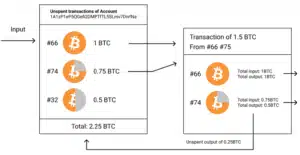Steps to Efficiently Conduct a Virtual Conference?

Virtual conferences have become a common alternative to traditional in-person events due to the COVID-19 pandemic. These events offer a convenient and cost-effective way for organizations to connect with their audience, exchange ideas, and showcase their products or services. Here are the steps to conduct a successful virtual conference.
- Define your objectives and target audience: Before you start planning your virtual conference, it is crucial to determine the purpose of the event. This could be anything from showcasing your company’s products, presenting research findings, or networking with industry professionals. Once you have identified your objectives, you should determine your target audience and tailor the conference to meet their needs.
- Choose the right platform: The next step is to select a suitable platform for your virtual conference. There are several options to choose from, including Zoom, Skype, Microsoft Teams, and Google Meet. Consider factors such as the number of attendees, the level of interactivity you want, and the cost of the platform.
- Plan the schedule and agenda: Once you have selected the platform, it is time to plan the schedule and agenda for your virtual conference. Make sure to allocate adequate time for each session, including keynote presentations, panel discussions, and Q&A sessions. Consider incorporating interactive elements such as live polls, chat rooms, and virtual networking opportunities to keep attendees engaged.
- Promote the conference: To ensure a good turnout, it is essential to promote your virtual conference effectively. Utilize social media platforms, email marketing, and other digital marketing channels to reach your target audience. Offer incentives for attendees, such as discounts on products or services, to increase the number of registrations.
- Prepare the speakers: Preparing the speakers for your virtual conference is critical to its success. Provide them with detailed instructions on how to use the platform, and make sure they have access to the necessary equipment, such as a reliable internet connection and a webcam. Encourage speakers to rehearse their presentations and familiarize themselves with the platform to ensure a seamless experience for attendees. Provide speakers with a detailed agenda and make sure they understand their role and responsibilities during the conference.
- Manage the logistics: Virtual conferences require a different level of logistical management compared to in-person events. Make sure to have a technical support team in place to handle any technical issues that may arise during the conference. Provide attendees with a clear schedule and guidelines on how to participate in the conference, including how to ask questions and engage with the speakers. Consider providing attendees with a virtual conference guide that includes important information such as the conference schedule, speaker bios, and instructions on how to participate.
- Evaluate the conference: Once the virtual conference has concluded, it is important to evaluate its success. Collect feedback from attendees, speakers, and partners to determine what worked well and what could be improved in future events. Utilize this feedback to inform your next virtual conference and ensure continuous improvement. Consider gathering metrics such as the number of attendees, engagement levels, and the satisfaction of attendees and speakers to measure the success of the conference.
- Provide technical support during the conference: Technical issues can arise during a virtual conference, and it is important to have a support team in place to handle them. Provide attendees with a clear point of contact for technical support and make sure they understand how to reach out if they encounter any issues. Consider having a designated technical support person or team available during the conference to assist attendees with any technical issues they may encounter, such as audio or video issues.
- Secure the virtual platform: Security is a critical concern for virtual conferences, especially when sensitive information is being shared. Make sure to use a secure platform that provides the necessary encryption and data protection measures to keep attendees’ information safe. Consider requiring attendees to register for the conference in advance and use a secure login system to access the conference.
- Follow up with attendees and partners: After the virtual conference has concluded, it is important to follow up with attendees and partners. Send out a thank you email to attendees, and ask for their feedback on the conference. Consider reaching out to partners to discuss future collaboration opportunities and to thank them for their support. Utilize the feedback from attendees and partners to inform your next virtual conference and ensure continuous improvement.
- Record and archive the conference: Recording and archiving the virtual conference can provide valuable information for future reference and can also be used as a resource for attendees who were unable to attend the conference. Consider using a recording and archiving platform that provides easy access to the conference recordings and transcripts for future reference.
In conclusion, conducting a virtual conference requires careful planning and preparation to ensure its success. By following these steps, you can host an engaging and productive event that meets your objectives and provides value to your attendees. Remember to keep your audience in mind throughout the planning process and incorporate interactive elements to keep them engaged and connected.









